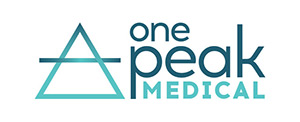Struggling With Incontinence?
Do you find it incredibly embarrassing that you don’t have full control over the contents of your bladder? You’re not alone. According to a December 2018 report published in the journal Climacteric, it’s estimated that incontinence affects 5-70% of people. There’s such a wide discrepancy in the data because many people may not seek help for their incontinence because of shame or thinking there’s nothing that can help.
Incontinence isn’t a normal part of the aging process, and there are many effective treatments that can help you gain control over your bladder.
At OnePeak Medical, with Nisha Jackson, Ph.D., at the helm, our primary care services include innovative and effective treatments and therapies for incontinence. Our team of health providers also includes professionals who specialize in healthy aging and treating age-associated health issues like incontinence.
If you’re struggling with incontinence, we can help.
About incontinence
In general, incontinence is the loss of control over the contents of your bladder. The loss may be a tiny dribble of urine or the entire contents of your bladder. In either case, your incontinence is a symptom of an underlying problem related to the nerves or muscles that control urination.
There are several different types of urinary incontinence.
Stress urinary incontinence
With stress urinary incontinence, your pelvic muscles may not be strong enough to prevent urine from leaking. Any stress or pressure on your bladder may cause urine to leak, like when you sneeze, laugh, or lift a heavy object.
Urge urinary incontinence
With urge urinary incontinence, also known as overactive bladder (OAB), you feel an unexpected and intense urge to urinate. This type of incontinence may occur because of overactive bladder muscles or a communication problem between your bladder and brain.
Mixed incontinence
Some people have both stress urinary incontinence and urge urinary incontinence, which is known as mixed incontinence.
Overflow incontinence
With overflow incontinence, your body makes too much urine for your bladder capacity or your bladder can’t fully empty during urination, leading to leakage.
Getting help for incontinence
Incontinence is a common problem that many people suffer from for a long time before seeking help. Not getting the help you need may affect your emotional, mental, and social well-being.
You may limit your daily outings and shy away from social activities because you never want to be too far away from your bathroom.
But there’s no need to let your incontinence take the joy out of your life. There are many effective treatments that can help you gain control over your bladder.
Whether your incontinence is a new problem or something you’ve been dealing with for years, we can help. When you come in for primary care services, your provider conducts an assessment to determine your incontinence type and its underlying cause.
Part of your evaluation may include lab work, such as a urinalysis, blood work, or hormone testing, which provides objective data about your health and gives us a better understanding of the root cause of your problem.
Treatments for incontinence
When treating incontinence, we base the therapies on your incontinence type, the severity of symptoms, and the underlying cause.
Initially, we may suggest lifestyle changes to help you regain control over your bladder, such as:
- Going to the bathroom every two to four hours
- Limiting your intake of caffeine and alcohol
- Reducing your liquid intake, especially before bed
- Adding pelvic floor exercises to your daily routine
If lifestyle changes fail to help you gain full control over your incontinence, we may try other options, such as prescription medication, a bladder training program, or platelet-rich plasma (PRP) therapy.
For menopausal women, we may recommend hormone pellet therapy to alleviate urinary incontinence.
Don’t let your incontinence stop you from enjoying your life. Let us help you regain control. Contact us today to schedule your consultation.

